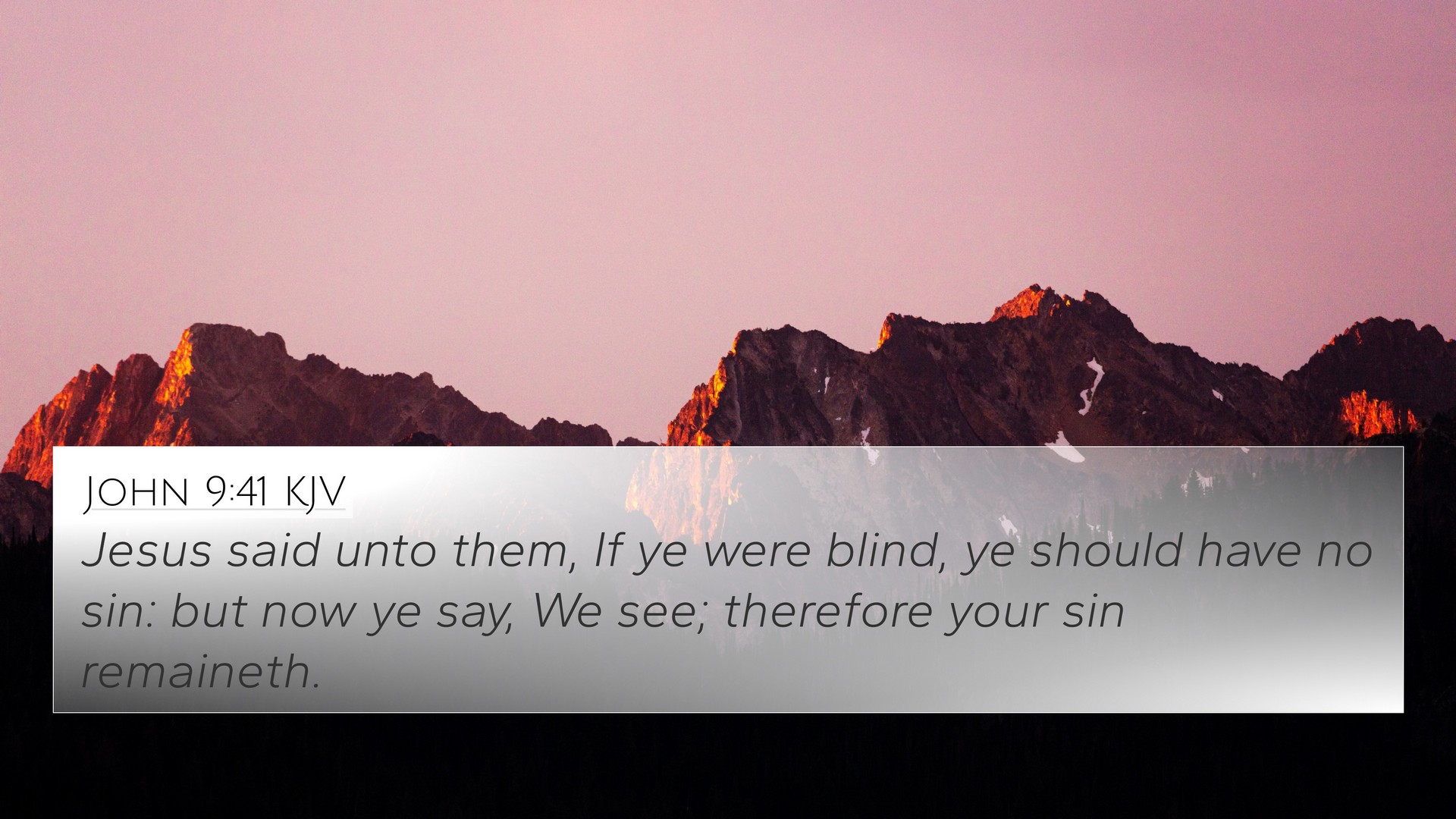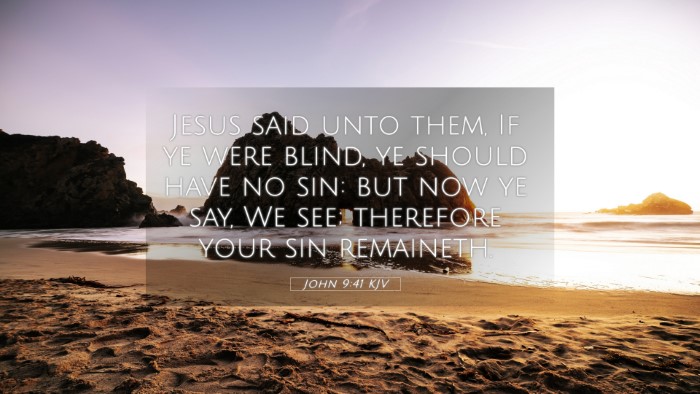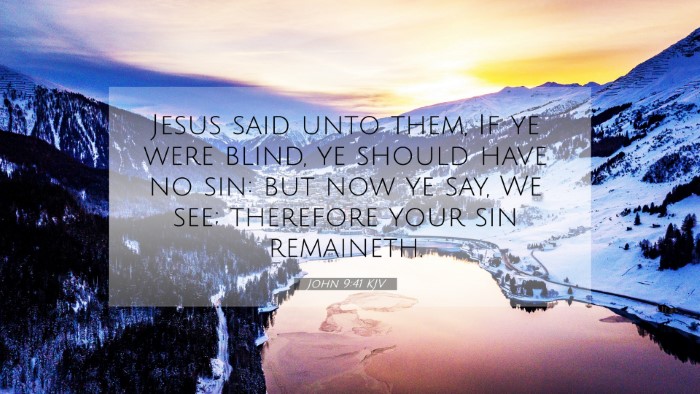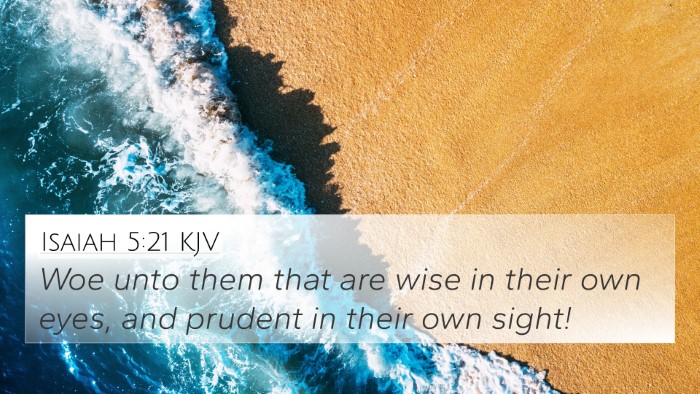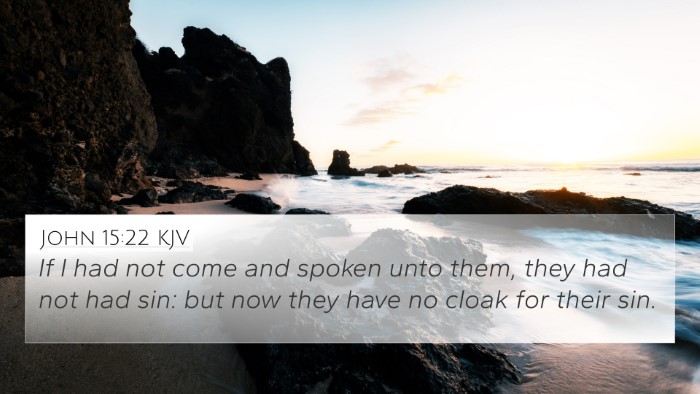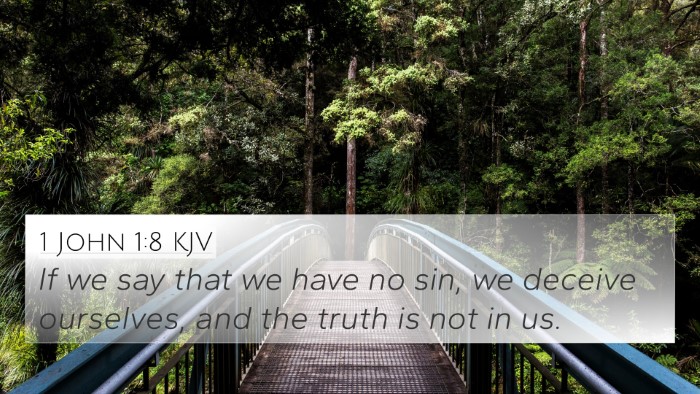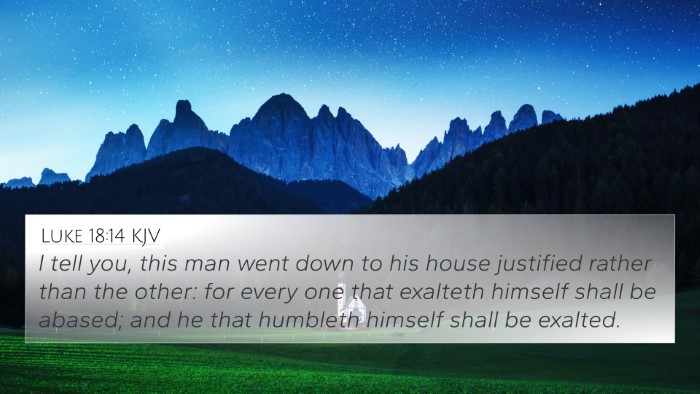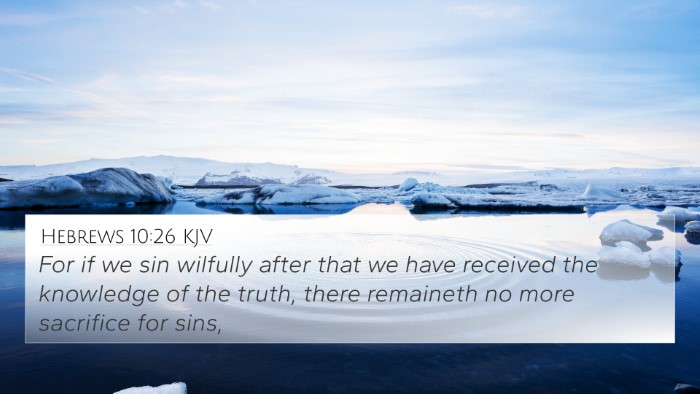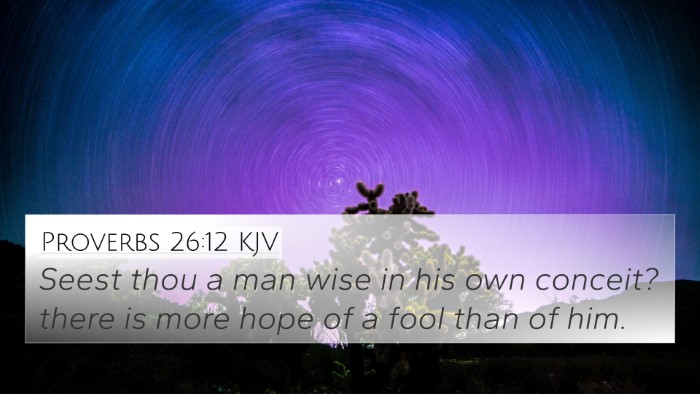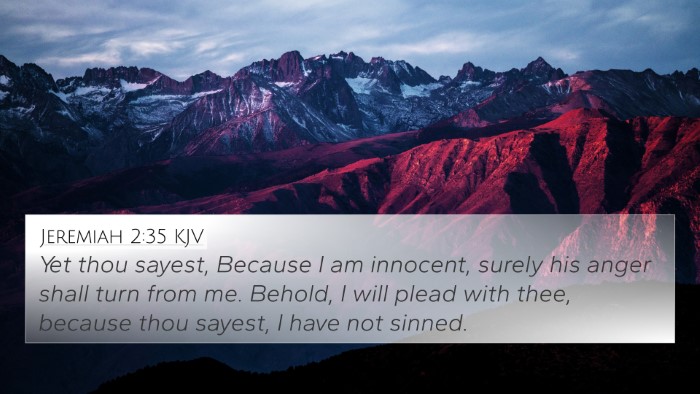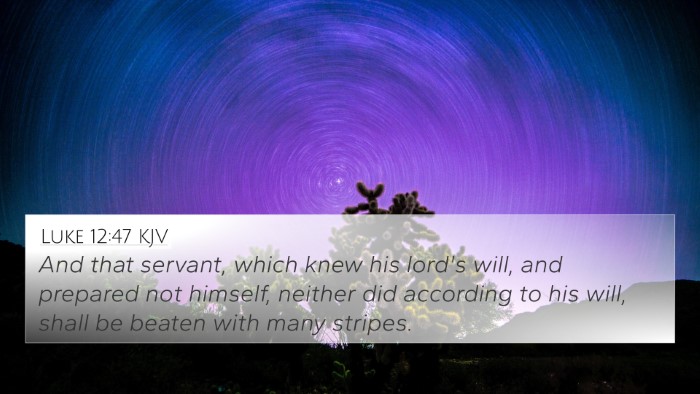Understanding John 9:41
John 9:41 states, "Jesus said to them, 'If you were blind, you would have no guilt; but now that you say, ‘We see,’ your guilt remains.'" This verse presents a profound teaching about spiritual blindness and knowledge, exemplified through Jesus' dialogue with the Pharisees.
Summary of Interpretations
This passage emphasizes the idea that acknowledging one's blindness, or lack of understanding, can lead to forgiveness and enlightenment. The Pharisees, who claim to see and know, ironically demonstrate their spiritual blindness and culpability. The comments of renowned Biblical scholars provide further context to this vital scripture.
- Matthew Henry: Henry emphasizes the danger of self-righteousness, arguing that the Pharisees' claim of insight is what blinds them. Their insistence on their spiritual sight affirms their guilt, as they reject the truth presented by Jesus.
- Albert Barnes: Barnes notes that if they acknowledged their spiritual blindness, they would not be held accountable for their ignorance. However, their refusal to recognize their condition exemplifies the depth of their sin.
- Adam Clarke: Clarke highlights the concept of spiritual insight, stating that recognition of one's blind state is the first step toward obtaining true sight through faith in Jesus. He underscores the idea that their claim to see indicates a lack of genuine understanding.
Key Themes and Connections
John 9:41 provides essential insights into critical biblical themes concerning blindness, knowledge, and accountability. Below are cross-references and thematic connections that enhance the understanding of this verse.
Cross-Reference Verses
- Matthew 15:14: "Let them alone; they are blind leaders of the blind. And if the blind lead the blind, both will fall into a ditch." This verse parallels the theme of spiritual blindness.
- John 12:40: "He has blinded their eyes and hardened their heart, lest they should see with their eyes and understand with their heart, and turn so that I should heal them." This emphasizes God's role in imparting spiritual insight.
- Revelation 3:17: "For you say, 'I am rich, have become wealthy, and have need of nothing'; and do not know that you are wretched, miserable, poor, blind, and naked." This reflects the danger of self-sufficiency in spiritual matters.
- 2 Corinthians 4:4: "Whose minds the god of this age has blinded, who do not believe, lest the light of the gospel of the glory of Christ, who is the image of God, should shine on them." Here we see the consequences of spiritual blindness revealed.
- Luke 6:39: "And He spoke a parable to them: ‘Can the blind lead the blind? Will they not both fall into the ditch?’" This emphasizes the futility of relying on blind spiritual guides.
- Isaiah 29:10: "For the Lord has poured out on you the spirit of deep sleep, and has closed your eyes, namely, the prophets; and He has covered your heads, namely, the seers." This illustrates the theme of divine judgment leading to ignorance.
- James 1:22-24: "But be doers of the word, and not hearers only, deceiving yourselves. For if anyone is a hearer of the word and not a doer, he is like a man observing his natural face in a mirror; for he observes himself, goes away, and immediately forgets what kind of man he was." This contrasts the acknowledgment of one's true condition with the danger of self-deception.
Thematic Connections in Scripture
The truth presented in John 9:41 resonates throughout the New Testament and the Old Testament alike, forming a coherent dialogue about spiritual awareness and God's redemptive plan:
- Faith and Assurance: The assertion of sight can mirror an individual's faith. Faith dictates spiritual clarity, while a lack of it fosters blindness (Hebrews 11:1).
- Judgment and Accountability: The idea of guilt remaining connects to the theme of divine judgment — those who claim to see must also abide by the laws of their spiritual sight (Matthew 12:36).
- Redemption Through Acknowledgment: Recognition of one's own blindness allows for redemption, tying into themes of repentance throughout Scripture (1 John 1:9).
Conclusion
John 9:41, rich with implications of spiritual visibility versus blindness, underscores the importance of acknowledging one’s spiritual condition before God. The insights from public domain commentaries highlight how claiming to see while being spiritually blind leads to guilt, while the true acknowledgment of one’s state opens the door to divine healing and understanding.
This exploration encourages a deeper engagement with scripture, motivating readers to utilize Bible concordances and cross-reference guides for discovering interconnections amongst biblical texts. Acquainting oneself with the broader narrative of Scripture enhances understanding and fosters spiritual growth.
